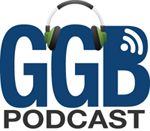
The concept behind racinos was simple: install slot machines at tracks and take a portion of the revenue generated would go to the Pennsylvania Race Horse Development Trust Fund, which increases purses at the state’s four tracks. Higher purses mean better horses, which means higher handle.
And it works. Most of the time. But a continued decrease in slot play at Hollywood Casino at Penn National Race Course has resulted in a cut back in live racing dates of 10.5 percent in 2023. The casino asked Pennsylvania Horse Racing Commission’s for—and received approval for—a drop in dates from 150 to 134, according to Eric Johnston, director of racing operations at Penn Entertainment.
To many, the idea of a decline in slot play is unheard of. But Todd Mostoller, executive director of the Pennsylvania Horsemen’s Benevolent and Protective Association, blames the rise in gaming competition and the proliferation of unregulated skill games, which cut into Hollywood Casino’s numbers.
“We had a mature gaming market in Pennsylvania,” said Mostoller, whose organization represents horse owners, trainers and backstretch workers at Penn National Race Course. “There is only so much money for gambling at one’s disposal and now they’ve legislated casinos in York and Morgantown with another coming in Shippensburg.”
Revenues generated by Hollywood’s York and Morgantown “mini-casinos” do not have to donate to the trust fund. Neither does revenue from online casinos and sports betting.
Thoroughbred horse racing will run Wednesday through Friday next year at the race course.
The schedule will also include two breaks: a two week one in April and a four week stoppage from late September to late October. The track tends to operate year round.
Moreover, each night will feature seven rather than eight races, But the average daily purse will stay at $146,000 a day, Johnston told Pennlive.com.
The loss of 16 dates equals a $2.33 million drop in available purse monies for owners, trainers and jockeys.
“They are all small businessmen back here and it’s a big deal if there are fewer chances for revenue production. It’s not an easy deal,” Mostoller said.
Governor Tom Wolf preferred to use slot revenue to create a scholarship fund for low and moderate income families. But horse owners and breeders said specific language in the trust bars that kind of use.



